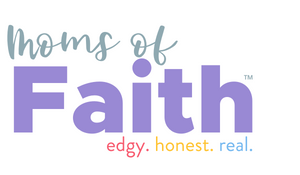How Google Ranks Your Web Page
Google is currently the Internets most important search engine. In addition to being a top search in itself, it powers the search engine components of AOL and Yahoo to name just a few. So if you haven’t figured it out already, you’d better have some understanding how Google indexes and ranks your web page.
This article does not strive to provide all the answers to Google rankings. It could take volumes and even then, search engines like to keep some things secret as they are intent on discouraging cheaters. This is not a technical document – it just provides you with tips on improving your Google rankings.
What Google looks at:
Link Popularity or PageRank: Google’s version of this is called PageRank. Very simply put, the idea is that site A votes for site B by placing a link to site B on site A. Despite popular belief, simply exchanging links with a whole bunch of sites isn’t necessarily going to increase your . The Google search engine analyzes the importance of the sites providing the links to your site. Focus on linking with sites with good rankings.
Download the Google Toolbar at toolbar.google.com to check your Page Rank and the PageRank of sites you link with. Be weary of linking with sites a PageRank of 0 ~ perhaps, they are new to the Internet, but they may also be a banned site. You don’t want to associate yourself with sites that have been banned.
You can see that Google does not index all the links to your site. Find out which links Google indexes by searching for your site “yourdomain.com” on Google. Then below your link, you’ll see the option “Find web pages that link to yourdomain.com”. There you’ll find the pages that Google has found that link to your site. You’ll notice that many of these links may be your own pages. Be sure to link all your pages together as this can help increase link popularity.
Link popularity is calculated on all the pages in your web site. You should generate links to all your important pages, not just your home page.
There is some discussion that link popularity is declining in importance on Google.* The whole premise behind link popularity is that is that a site is placing a vote for your site by placing your link on their site. Well, with reciprocal links, the weight of that vote is lessened. Sites are exchanging links to increase link popularity; they are not necessarily recommending the sites they link with.
Incoming Link Text: When building incoming links to your website, always use your keywords. Ensure you tell your link partners and others who want to link to you, to use the keywords you have chosen.
For example:
Good link: Work at Home Mom – Free Internet Based Business Tips & Ideas InternetBasedMoms.com has tips for choosing an online business, building a web page, search engines and promoting your business online.
Not such a good link: internetbasedmoms.com ~ Work at home mom free Internet based business tips & ideas. Tips for choosing an online business, building a web page, search engines and promoting your business online.
Search engine spiders read the text in your link and this may help your rankings for those keywords. The idea is if people are linking to you with those words in their link, then they must be relevant to your site.
Meta Tags: Google considers your Title tag when indexing your page. It considers your Description Tags to some extent and sometimes uses them in search results, but does not consider your Keyword Meta Tags.
Title Tags: Title tags play heavily in your ranking for a search on Google. Title tags with just your company name on every page are not going to cut it. Or are you a victim of “new page 1” title tags because you forgot to name your pages? If so, go fix your Title tags right now!
The Title tag is what appears at the top of a Google search result, so it should describe what your business is all about and should include keywords people would use to find your site. Google will read about 59 characters (including spaces) in a Title.
ALT Tags: Google also reads the ALT Tags that are attached to your graphics. They are a good way to include more keywords in your web page. They are also the words that appear when you move your mouse over a graphic.
Content: Google searches the content on your site to return relevant search results. Be sure to include relevant keywords in the text of all your pages. Also, try to keep them near the top of your pages – Google may not crawl all the way down your page.
For example, if someone would search for your site with the keywords “cloth diapers” – be sure to include those words in your Title tag and near the top of your web page.
Domain Name: Having your keywords in your domain name may boost your ranking. Google seems to favor sites with keywords in their domain.
For example, if you search for “diaper” on Google, the top results have the word “diaper” in the domain name.
Those are just a few basics to Google rankings. Incorporate some of these suggestions into your web page, wait for Google to update in a few weeks and see the difference. Determine what works and what doesn’t and continually improve your site based on what you discover.
*see PageRank Explained by Chris Ridings of searchenginesystems.net
About the Author: Alice Seba thrives on helping others build profitable online businesses. Claim your Internet Marketing prescriptions to success at https://www.aliceseba.com
